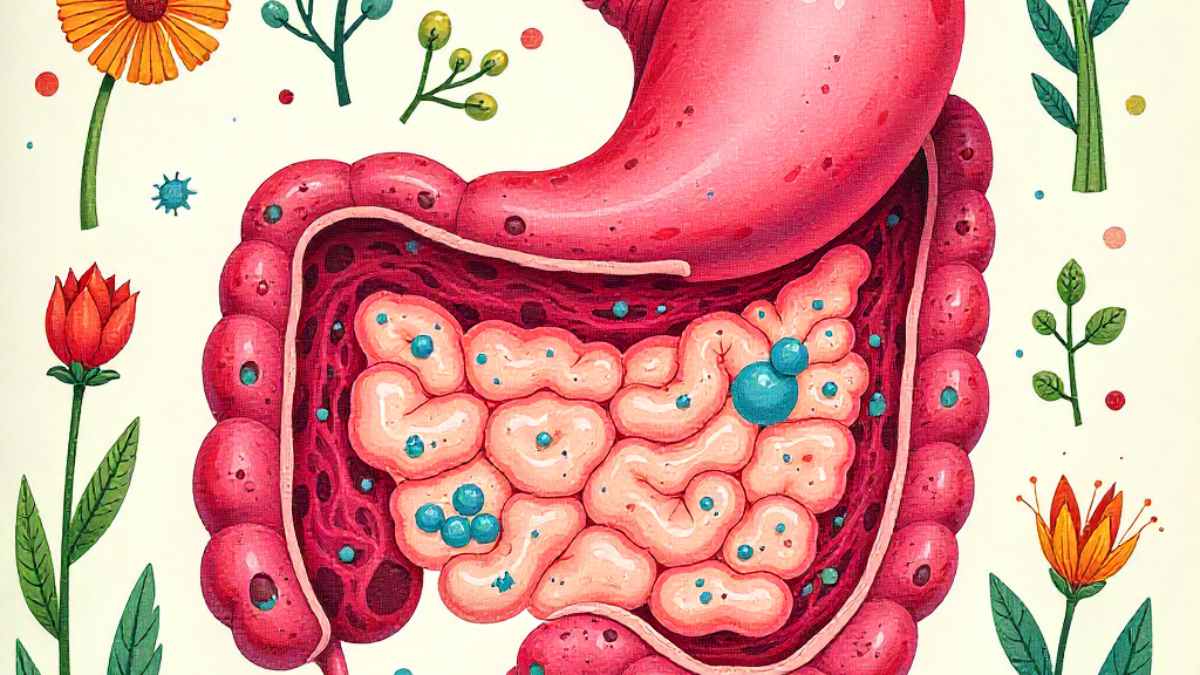Sleep Quality and Gut Integrity What You Should Know Now
Do you ever feel like your gut is a grumpy houseguest? Maybe it rumbles and grumbles, making it hard to focus or enjoy the day.
Or, how about those nights when sleep feels as elusive as a winning lottery ticket? Well, there’s a fascinating connection between these two struggles: your Sleep Quality and your Gut Integrity. This post explores the surprising ways they impact each other.
You’ll discover practical tips to improve both and gain a deeper sense of how a good night’s rest and a happy gut go hand in hand, improving your overall health and well-being.
Key Takeaways

The Connection Between Sleep and Gut Health
It’s easy to think of sleep as a separate function, but the reality is your body is hard at work while you snooze.
This work involves maintaining and repairing various systems, including your digestive system. Likewise, what you eat and how your gut functions directly influence your ability to fall asleep and stay asleep.
Discovering these interwoven aspects offers powerful insights into wellness that can positively shift your daily life.
How Sleep Affects Your Gut
During sleep, the body resets and repairs. When you don’t get enough sleep, your body is less able to regulate the important processes within your gut.
This can cause imbalances in the gut microbiome. This refers to the collection of microorganisms, including bacteria, viruses, and fungi, living in your digestive tract.
These are essential for digestion and immune function. Sleep deprivation can shift the balance, possibly leading to more “bad” bacteria and fewer “good” bacteria. It sets off a chain of events that can impact your overall health.
- Microbiome Imbalance: A lack of sleep has been shown to reduce the diversity of gut bacteria. When this happens, the body’s ability to maintain normal operations is altered.
Sleep deficiency can cause a rise in specific types of bacteria that are linked to inflammation. This is similar to setting off a fire alarm in your gut. This is a key point because chronic inflammation is connected to various health problems.
- Gut Barrier Disruption: Poor sleep may weaken the gut lining, sometimes referred to as “leaky gut.” This disruption lets substances from the gut enter the bloodstream.
A weakened gut barrier is comparable to a security system that’s not working well, allowing unwanted substances to “leak” into the body. The body then has to work extra hard to manage and clean these substances. This constant stress can cause fatigue and a wide range of other health problems.
- Hormonal Changes: Sleep deficiency disrupts hormone levels, including those that regulate appetite and stress. These changes can affect your gut health and digestive processes.
Poor sleep disrupts the natural balance of hormones that manage hunger and stress, thus influencing the health of your gut. This is because the gut also uses its own set of hormones that have to work in tandem with the body. The gut and brain work together on this.
What the Gut Does for Sleep
The gut also plays a critical role in sleep. A healthy gut microbiome can produce and influence the levels of neurotransmitters, such as serotonin, which is crucial for sleep regulation.
A balanced gut helps ensure that the body gets signals telling it when to be awake and when to sleep. As a result, you’ll have a much easier time falling asleep, as well as getting the quality of rest you need.
- Production of Neurotransmitters: The gut microbiome can produce neurotransmitters, like serotonin, which is involved in sleep-wake cycles and mood.
The gut is a major producer of serotonin, a neurotransmitter that heavily influences sleep patterns. Without sufficient serotonin, it’s hard to regulate the sleep-wake cycle, possibly leading to insomnia. This is why a well-functioning gut is crucial for good sleep.
- Inflammation Control: A healthy gut helps keep inflammation in check. Chronic inflammation can disrupt sleep.
A balanced gut microbiome helps to control inflammation. This is important because inflammation can disrupt sleep. When inflammation is under control, it can directly affect better sleep.
- Nutrient Absorption: The gut is where your body absorbs nutrients. This includes nutrients that support sleep, such as magnesium and tryptophan.
The gut’s health plays a key role in how well nutrients are absorbed. Specific nutrients like tryptophan and magnesium, which are important for sleep, need a well-functioning gut for effective absorption. If the gut is not functioning correctly, this can hinder sleep.
The Impact of Diet on Sleep Quality and Gut Integrity
What you eat greatly influences both your sleep and your gut health. A diet that provides the proper nutrients is helpful for building and maintaining a healthy gut, which in turn supports your ability to sleep well.
Conversely, a diet heavy in processed foods, added sugars, and unhealthy fats can disrupt both. By understanding these connections, you can make conscious choices that better your well-being.
Foods That Encourage Better Sleep
Certain foods contain nutrients that can aid sleep. This doesn’t mean you should only eat those foods. Instead, include them regularly in a balanced diet. They can help improve the quality of your rest. Make these additions to your diet to get more restful sleep.
- Foods Rich in Tryptophan: Tryptophan is an amino acid used by the body to make serotonin and melatonin, which are both key for sleep. Examples: turkey, chicken, and nuts.
Including foods rich in tryptophan can boost serotonin and melatonin levels, both of which are significant for improving sleep. Turkey is a popular source of tryptophan, although it’s not the only food source. Nuts, seeds, and dairy products also offer this sleep-promoting amino acid.
- Foods High in Magnesium: Magnesium helps to relax muscles and calm the nervous system. Examples: leafy green vegetables, nuts, and seeds.
Foods rich in magnesium have properties that are known to relax muscles. They also calm the nervous system, making it easier to fall asleep. Magnesium is a mineral that plays a huge role in overall health, including sleep.
- Complex Carbohydrates: Complex carbohydrates can boost the production of serotonin, which supports sleep. Examples: whole grains and starchy vegetables.
Complex carbohydrates can boost serotonin production, which helps your body naturally prepare for sleep. Integrating whole grains and starchy vegetables into your diet can support better sleep. These foods also offer valuable fiber, helping to support a healthy gut.
Foods That Might Disrupt Sleep
On the other hand, some foods can disrupt your sleep and negatively impact your gut. A diet rich in processed foods and added sugars can lead to inflammation and imbalances in the gut microbiome, potentially hindering your sleep. Being aware of these food choices will allow you to make decisions that can benefit your body.
- Caffeine: Caffeine is a stimulant that can interfere with sleep patterns, making it difficult to fall asleep.
Caffeine is an alertness-increasing stimulant. If consumed too close to bedtime, it can make it hard to fall asleep. Limiting caffeine intake, especially in the hours before bed, is important for those who want better sleep.
- Alcohol: While alcohol may help you fall asleep at first, it often disrupts sleep later in the night.
Drinking alcohol before bed might make you fall asleep faster initially, but it tends to disturb sleep during the night. This is because the body works to process alcohol, which disrupts the natural sleep cycle. You end up waking more.
- Processed Foods: Processed foods are often full of added sugars and unhealthy fats, which can disrupt the gut microbiome and lead to inflammation, potentially impacting sleep.
Processed foods are typically high in sugar and unhealthy fats. These factors can trigger inflammation and disrupt the gut microbiome. This disruption can hurt sleep. Limiting processed foods can help promote a healthier gut environment and support improved sleep.
Lifestyle Factors That Influence Sleep and Gut Health
Beyond what you eat, several lifestyle factors play a part in how your sleep and gut work. These factors encompass daily habits, stress levels, and overall routines. Making beneficial changes to your lifestyle can help both your sleep and your gut function.
The Role of Exercise
Physical activity can have a good effect on sleep and gut health. Regular exercise can help regulate sleep patterns and decrease stress, while improving the diversity of the gut microbiome. This can improve overall health.
- Improved Sleep Quality: Exercise helps regulate the sleep-wake cycle, making it easier to fall asleep and stay asleep.
Consistent exercise can help regulate the sleep-wake cycle. Regular physical activity makes it easier to fall asleep at night and wake up feeling refreshed. Exercise helps by balancing the body’s natural rhythms.
- Stress Reduction: Physical activity can help reduce stress levels, which can improve sleep and gut health.
Regular exercise helps to reduce stress, which affects both sleep and the gut. Exercise helps by reducing the production of stress hormones. This helps create a more stable environment in the gut.
- Enhanced Gut Microbiome: Regular exercise can promote a more diverse and balanced gut microbiome.
Exercise can encourage a more balanced gut microbiome. By having more variety, the gut is better equipped to perform its functions, including aiding in sleep quality.
Managing Stress
High stress levels negatively affect both sleep and gut health. Stress can disrupt sleep patterns and contribute to gut inflammation and imbalance. Using effective stress-management techniques is important for a healthier lifestyle.
- Stress and Sleep: Chronic stress can lead to poor sleep, making it hard to fall asleep or stay asleep.
Ongoing stress has a significant impact on sleep. If stress is constant, it can make it harder to fall asleep. Stress also reduces the time in deep, restorative sleep. This can make you wake up tired.
- Stress and the Gut: Stress can disrupt the gut microbiome and increase gut inflammation.
Stress can upset the gut microbiome and make inflammation worse. Stress impacts the gut by increasing the amount of stress hormones in the body. Chronic stress can lead to more digestive issues.
- Stress-Reduction Techniques: Techniques such as meditation, yoga, and deep breathing can improve both sleep and gut health.
Practicing techniques like meditation or yoga can greatly help your health. These practices can calm the nervous system and lower stress levels. This, in turn, supports better sleep and gut health.
Supplements and Sleep and Gut Health
Some supplements can help in both sleep and gut health. These supplements are used by many to help improve their quality of life.
However, it’s important to note that it’s important to consult with a healthcare professional before beginning a supplement regimen. Supplements are a great way to promote health, but they are not always for everyone.
Probiotics for Gut Health and Sleep
Probiotics are beneficial bacteria that can improve gut health and affect sleep. They can influence the gut microbiome and, thus, sleep quality. This is especially true if the probiotics contain strains specifically linked to improved sleep.
- Gut Microbiome Balance: Probiotics help increase the number of good bacteria in the gut.
Probiotics are helpful for balancing the gut microbiome, by adding beneficial bacteria. A balanced gut can help your sleep and make it more productive. Probiotics can help counter any negative impacts on your gut bacteria.
- Anti-Inflammatory Effects: Some probiotics may help reduce inflammation in the gut, which can indirectly promote better sleep.
Some probiotic strains have anti-inflammatory properties. Reducing gut inflammation supports the quality of your sleep, making it more refreshing. Reducing inflammation improves the gut’s overall function.
- Potential Benefits: Specific probiotics may improve sleep duration and quality.
Research is showing that certain probiotics can increase sleep duration and improve sleep quality. This benefit is usually due to the probiotics positively changing the gut environment. This can include better digestion or lowered inflammation.
The Use of Prebiotics for Gut Health and Sleep
Prebiotics can also support sleep and gut health by feeding the beneficial bacteria already in your gut. When you get the proper nutrition in the gut, it can do many things that help you sleep.
This can include decreasing inflammation and making it easier to fall asleep and stay asleep. Prebiotics are also important for the good bacteria in your gut.
- Feeding Good Bacteria: Prebiotics feed the good bacteria in your gut, helping them thrive.
Prebiotics are not bacteria themselves. However, they feed the beneficial bacteria in your gut. By boosting the health of your existing bacteria, prebiotics support improved digestion and nutrient absorption. This indirectly affects sleep.
- Improved Gut Environment: Prebiotics can improve the overall environment in the gut, which helps support better sleep.
Prebiotics contribute to a more healthy gut. This can lead to less inflammation and a more stable gut environment. This can then affect sleep quality by providing an important foundation for restful sleep.
- Potential Benefits: Prebiotics may indirectly improve sleep by promoting a healthy gut.
By fostering a healthy gut, prebiotics can improve your sleep. Healthier digestion can improve your sleep and give you more energy during the day. Prebiotics help to maintain a balanced gut environment.
Addressing the Gut-Brain Axis
The gut-brain axis is a communication system that connects your gut and your brain. It shows how the function of your gut has an effect on your mental state and sleep.
Understanding the gut-brain axis is key to getting a better understanding of the connection between sleep and gut health.
Communication Pathways
The gut and brain communicate through the nervous system, hormones, and immune responses. These communication pathways show how the gut affects the brain and vice versa. This gives insight into a deeper way to address health problems.
- The Vagus Nerve: The vagus nerve is a key communication pathway that sends signals between the gut and the brain.
The vagus nerve is the main channel of communication between the gut and the brain. This nerve transmits signals from the gut to the brain. The health of the vagus nerve is important for both digestion and sleep.
- Hormones: Hormones like serotonin and cortisol, which are produced in both the gut and brain, play a key role in this communication.
The gut and brain communicate through hormones. Key hormones like serotonin and cortisol can have significant effects on sleep, mood, and gut health. The balanced production of these hormones is necessary for overall health.
-
- Immune System: The immune system also plays a role, as inflammation in the gut can affect brain function and sleep.
The immune system is an important factor in how the gut and brain connect. Any gut inflammation can then affect your brain function and sleep. Managing inflammation supports a healthy gut-brain connection.
Examples of the Gut-Brain Axis at Work
Several examples show how the gut and brain affect each other. These real-life situations show how the health of the gut can impact mental well-being and sleep. It’s important to note the links between these aspects of health.
- Stress and Digestive Issues: Someone experiences a stressful event and then develops stomach issues. This is the gut being affected by stress.
When a person experiences stress, they may notice issues like stomach aches. Stress can directly influence your gut health. Your gut responds to the effects of stress. The stress can cause digestive discomfort, and that can cause more sleepless nights.
- Depression and Gut Microbiome: Research shows that people suffering from depression also have an imbalance in their gut bacteria. This shows how mental health and gut health are connected.
People dealing with depression might also have imbalances in their gut bacteria. This shows that mental health and gut health are linked. This can then lead to digestive problems and poor sleep. It’s important to address both.
- The Impact of Diet on Mental Health: Eating foods that are high in added sugars can negatively affect the gut microbiome. These can contribute to mental health problems.
Eating too much sugar can damage the gut microbiome and mental health. By eating a good diet, you can help manage your mood and gut health. These choices influence each other.
The Importance of Personalized Approaches
Everyone is different, and what works for one person may not work for another. It’s important to personalize your approach to improving both sleep and gut health. A personalized plan may require seeking professional help to find the best ways to improve your quality of life.
Consulting with Professionals
When thinking about improving your sleep and gut health, it is useful to consult with experts. They can provide support and suggestions. They can suggest plans tailored to meet your individual needs.
- Doctors: A healthcare provider can do a general check-up, perform tests, and give medical advice.
A primary care doctor can provide important medical advice. They may recommend tests and guide you in managing your health. They can also suggest changes and create a plan that suits your needs.
- Registered Dietitians: They can help you create a meal plan and make diet modifications.
Registered dietitians can help you set up a diet plan that supports both sleep and gut health. They help you make choices and eat a balanced diet to support a healthy gut and sleep. They can also recommend beneficial food choices.
- Sleep Specialists: A sleep specialist can help if you have persistent sleep problems.
Sleep specialists can help you find the root cause of your sleep problems. They use different methods to diagnose issues and work with you to manage sleep disorders and improve the quality of your sleep. They can also provide support.
Developing a Tailored Plan
Developing a plan requires looking at your individual needs, goals, and lifestyle. Making small, gradual adjustments is the best approach for consistent results. It is also important to have realistic expectations.
- Assess Your Current Sleep and Gut Health: Start by assessing your sleep patterns and gut health.
Begin by assessing your current sleep and gut health. Write down what you eat and drink, how much you sleep, and how your body feels. Knowing your current health situation will set you up to have a more effective plan.
- Set Realistic Goals: Start with small, manageable changes, such as adding a probiotic supplement.
Make small changes over time and set goals that are easy to achieve. This allows you to slowly improve your health without feeling overwhelmed. Small, achievable changes can create a big difference.
- Track Your Progress: Track your sleep, gut symptoms, and how you feel.
Keep track of how well you are sleeping, your gut symptoms, and how you are feeling. This can show you whether the changes are working for you. Keeping track also allows you to make adjustments.
FAQ OF Sleep Quality and Gut Integrity What You Should Know Now
How does sleep quality affect gut bacteria?
A: Poor sleep can reduce the diversity of your gut bacteria, increase inflammation, and possibly weaken your gut barrier, allowing undesirable substances to enter the bloodstream.
Can gut health influence my sleep patterns?
A: Absolutely. A healthy gut can produce and influence neurotransmitters like serotonin, which are essential for sleep regulation.
What foods should I eat to improve both my sleep and gut health?
A: Focus on foods rich in tryptophan (like turkey), magnesium (leafy greens), and complex carbohydrates (whole grains). These can help with sleep and gut health.
How does stress affect sleep and gut health?
A: Chronic stress disrupts sleep patterns and can contribute to gut inflammation and imbalance. It’s important to use stress-reduction techniques.
Should I take probiotics for sleep and gut health?
A: Probiotics, particularly those with strains linked to improved sleep, can help improve gut health, reduce inflammation, and potentially improve sleep duration.
Final Thoughts
We’ve explored the interesting connection between Sleep Quality and Gut Integrity: What We Now Know. It’s clear that a happy gut and a good night’s rest are closely linked.
A balanced gut microbiome supports restful sleep, while proper sleep boosts gut health. By paying attention to your diet, lifestyle, and stress levels, you can significantly improve both aspects of your well-being.
Try incorporating some of these tips, listen to your body, and see how a few small changes can bring a big difference to your sleep and gut health today.

![10 Causes of Morning Stomach Discomfort Why You Feel Awful[1]](https://mycleanseplan.com/wp-content/uploads/2025/11/10_Causes_of_Morning_Stomach_Discomfort__Why_You_Feel_Awful1-768x448.jpg)




![10 Early Signs You're Not Producing Enough Stomach Acid[1]](https://mycleanseplan.com/wp-content/uploads/2025/11/10_Early_Signs_Youre_Not_Producing_Enough_Stomach_Acid1-768x448.jpg)